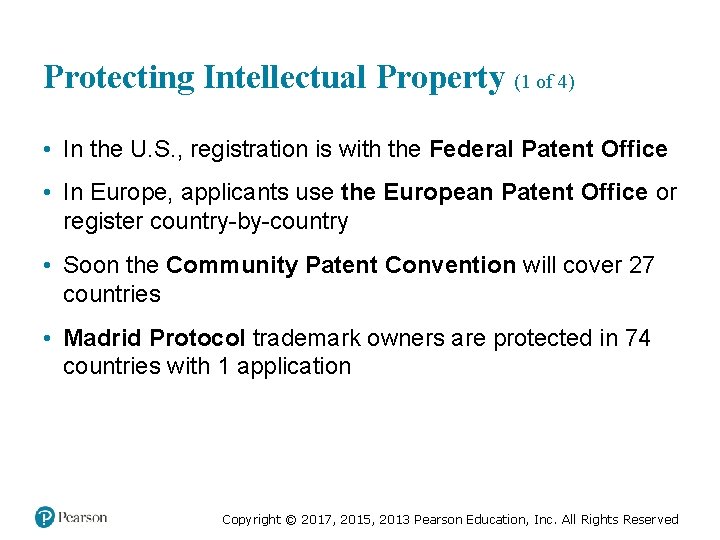Protection of Intellectual Property in Canada
> Business > Articles
Protection of Intellectual Property
DISCLAIMER The information provided here is of a general nature and may not apply to any specific or particular situation. It is not to be considered as a legal advice nor presumed to be indefinitely up to date.
Aside from competence of management team, control of intellectual property is a major focus of investor scrutiny. The ability to identify and protect intellectual property directly reflects on investor confidence and the resulting access to capital available to a start up. Protection of intellectual property assets is available through the law of copyright, trade secrets, patents and trademarks. While a company may have a variety of intellectual property assets with different requirements for protection, typically only one or two types of protection will be available for a particular asset of the company. The entrepreneur should consider several factors before choosing particular type of protection. First, the entrepreneur should consider the nature of the intellectual property assets. Literary, dramatic, musical and artistic works such as books, movies, computer code, engineering drawings and semiconductor topology best lend themselves to copyright protection. Company names, symbols and advertising slogans that are employed to establish corporate identity use trademark protection. Patents afford protection to inventors of new, useful and unobvious ideas with practical industrial applications such as machines, products, processes or improvements of existing technology. Finally, some protection could be obtained for trade secrets at Common Law, however this protection is volatile. Secondly, the entrepreneur should consider how the intellectual property is going to be used. Company names, logos and authored materials are designed to be in the public domain. However, critical business information and inventions must be protected. Patents provide the strongest protection for inventions but only for a limited time and require complete disclosure of the invention. Trade secret protection at Common Law is inexpensive and available for anything of economic value anywhere in the world and may last indefinitely, however this type of protection can collapse despite the entrepreneur’s best efforts if someone learns the trade secret independently or through reverse engineering. Finally, the entrepreneur should consider the cost required to protect the company’s intellectual property. Copyright registration is available for a nominal fee, while trademark registration is more expensive, and patent protection is quite costly. The legal cost of patent prosecution, correspondence, issuance and upkeep fees may amount to thousands of dollars. 1. Copyright Copyright protection in Canada is afforded under the Copyright Act. Copyright protection is granting to authors of original literary, dramatic, musical and artistic work for a limited period of time. Quality and legality of work are not relevant for copyright protection. Copyright prevents unauthorized copying only, and only protects expressions fixed in a tangible medium. Ideas alone cannot be copyrighted, but an author's unique expression of an idea is copyrightable. The creator of the original work owns the copyright and may transfer his or her right by sale or a gift. An employee who creates a copyrightable work during and within the scope of employment loses his right in favor of the employer. On the other hand, a person who creates a work under written agreement to commission a work is deemed to be the owner of the copyright. Like the United States, Canada is a party to the Universal Copyright Convention. Thus, each country is committed to giving the same protection to the others copyrighted works as it gives to the works of its own nationals. Unlike the United States, Canada is also a party to the Berne Copyright Convention. As a member of the Berne Union, Canada is committed to a copyright regime that provides automatic protection without formalities for copyrightable works. There is no requirement in Canada to register a copyrightable work or to deposit such a work with any regulatory authority. In Canada registration of copyrightable works is permitted on a voluntary basis and does provide advantages in terms of establishing proof of ownership, especially in the case of assignments of copyright. Copyright grants the author exclusive rights to the material for the author's life plus 50 years. A copyright holder receives the exclusive right to reproduce, prepare derivative works, distribute, perform, or display the work. These rights are subject to the “good cause or excuse?and the "fair dealing" doctrines. The good cause suggests that a person may deal with otherwise copyrighted material in a matter of public interest. In contrast, the fair dealing doctrine permits use of copyrighted work for the purposes of private study, research, criticism, review or newspaper summary.

